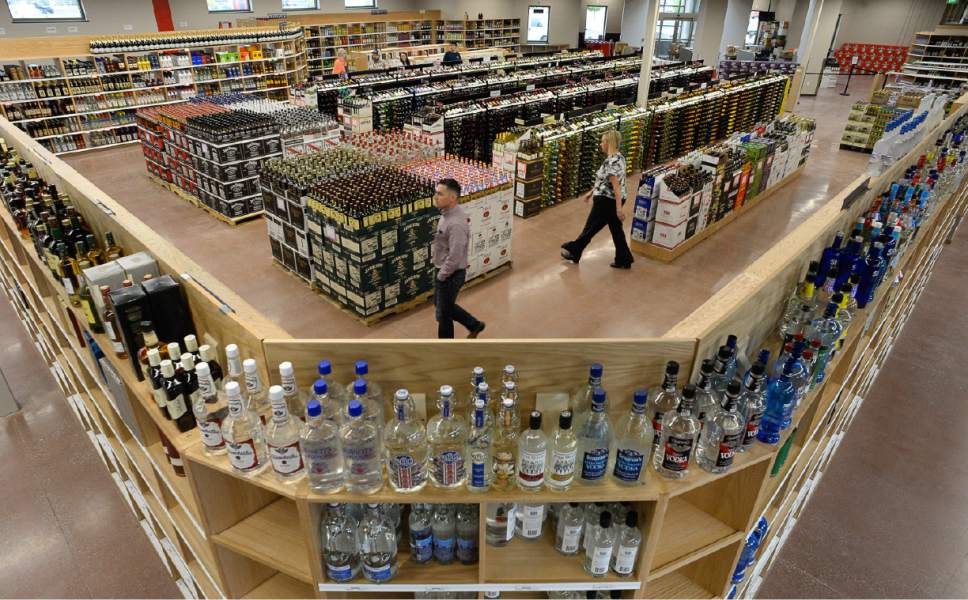This is an archived article that was published on sltrib.com in 2017, and information in the article may be outdated. It is provided only for personal research purposes and may not be reprinted.
Three Wasatch Front liquor stores are trying out new retail technology that tracks customer buying patterns. It's data that could be used to customize the products at individual stores, while at the same time keeping selections fresh and preventing items from running out.
"The goal is to have the right products in the right place at the right time," Alla Voldman, with Goldratt Consulting, said during a presentation Tuesday.
The Governor's Office of Management and Budget brought in the retail consulting group, based in Israel, hoping to improve efficiencies and overall customer satisfaction for the often-criticized liquor stores operated by the Utah Department of Alcoholic Beverage Control (DABC).
The pilot program — called Symphony — is tracking sales patterns at the liquor stores on Foothill Drive in Salt Lake City, Holladay and West Valley City, DABC Executive Director Sal Petilos told members of the state liquor commission.
The program seems to be a step up from the current centralized ordering system. "It has a certain immediacy that is not available in the current system," Petilos said. "And it addresses the concerns about the stagnant portfolio we have at the DABC."
The pilot program will be reviewed in September to see if it is worth continuing. "If we decided it's a great product and we want to implement it across the entire system, it will require resources," he said.
Voldman said the technology looks at sales numbers, but also tracks potential sales in different categories and price ranges for beer, wine and spirits.
"We can look at what SKUs (products) don't exist at a store, but have the highest sales potential," she told the commission. In many cases, the products in the weak category — like a pinot noir in the $20-$30 range — already are in stock at the state warehouse and could be sent to the store to improve availability and selection.
Commission Olivia Agraz said she hopes the system fixes many of the complaints about lack of selection and availability, especially during the busy Christmas holiday season.
Last year, she said, Baileys Irish Cream was hard to find near Christmas, while on New Year's Eve, stores were running out of certain brands of Champagne. "We have to make sure products are available," she said. Besides the complaints, "we lose money."
Even with its current inefficiencies, however, the DABC continues to experience revenue increases.
During the 2016-2017 fiscal year, which ended June 30, the DABC collected more than $427 million in alcohol sales, according to tentative end-of-year numbers, also released Tuesday. That represents an increase of $21.3 million or 5.3 percent from the previous year.



